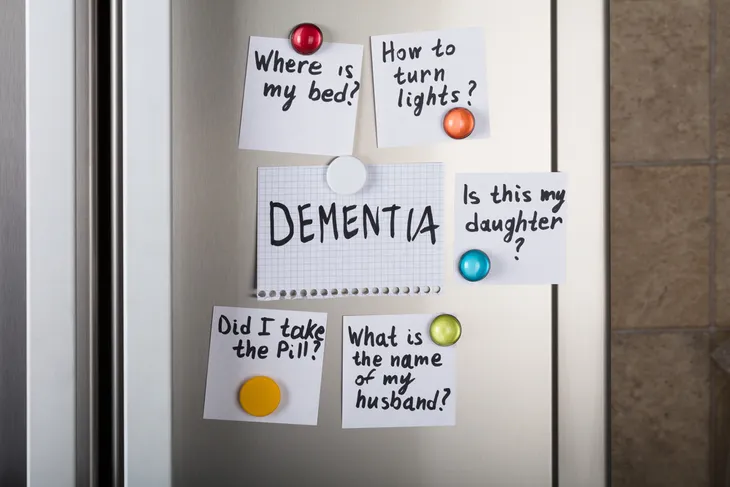Diabetes is one of the most prevalent health problems affecting people in North America right now. Although type 1 diabetes starts at birth, type 2 diabetes can emerge later in life and is often the result of years of poor dietary choices.
In any case, once a diabetes diagnosis is made, patients need to make a number of crucial, and sometimes very difficult, changes in the lifestyle and especially their diet. Failing to do so could lead to other, even more significant health problems, many of which we’ll explore here in this article. So, what are some of the complications of diabetes?
Want diabetes content delivered straight to your inbox? Sign up for our Diabetes newsletter and receive exclusive news and articles written from our team of diabetes experts.
1. Heart Problems
Failing to make thoughtful and careful decisions following a diabetes diagnosis can lead some patients to experience serious heart and blood vessel problems. This isn’t particularly surprising, given that people with diabetes see their chances of having heart problems double following a diagnosis. This also means diabetes patients are far more likely to experience a stroke.
Blood vessel problems can also be tied to diabetes. Failing to follow a lifestyle regimen implemented by a doctor can cause blood vessel complications to the extent that some parts of the body, such as the feet, may need to be amputated. In fact, people with diabetes are far more likely to lose their feet or toes than healthy people. If you have diabetes and begin to feel odd sensations in your legs — including cramps, pain, or skin discoloration — talk to your doctor immediately.
2. Eye Problems
People with diabetes have a much higher risk of experiencing health conditions affecting the eyes, including glaucoma and cataracts. In fact, for most middle-age Americans, diabetes is the leading cause of vision loss. The problem is that diabetes can directly impact the blood vessels in the eyes and failing to follow a strict diet can cause these blood vessels to react in ways that lead to vision impairment or even blindness.
If you begin to experience significant vision problems, it’s important to speak to your doctor right away. Anyone with diabetes should see an eye doctor on a regular basis in order to receive eye exams that can help catch emerging vision issues. The positive news is that, if caught early on, many eye problems associated with diabetes can be treated effectively.
3. Kidney Problems
Kidney failure and diabetes are inextricably linked; in fact, diabetes is currently the number-one cause of adult kidney failure in the United States. That’s a major problem because it can be very difficult to diagnose diabetes-related kidney problems; the reason: symptoms are rare and hard to detect.
Thankfully, there are a number of medications specially designed to regulate blood pressure in diabetes patients and significantly reduce the risk of kidney problems. Still, it’s hugely important that anyone diagnosed with diabetes have regular conversations with their family doctor about the potential for kidney-related issues.
4. Nerve Damage
Diabetes patients who fail to maintain acceptable blood sugar levels through their diet may find themselves feeling very ill. Each time this occurs, the patient can experience significant nerve damage. Over time, this nerve damage can cause serious pain and discomfort that can be difficult to identify or treat.
Diabetes patients experiencing nerve-related problems may feel a burning sensation in various parts of the body, especially the feet and toes. Other symptoms of nerve damage range from digestive problems to dizziness and difficulty performing sexually. Should you experience any of these issues, there’s a chance that your diet is having a negative impact on your nerves. Be sure to discuss the situation with your doctor right away.
5. Dental Problems
Did you know that diabetes patients who fail to maintain healthy blood sugar levels put themselves at risk of having serious dental problems, like gum disease? It’s true, and hugely problematic given that many Americans don’t have complete dental coverage through work.
If you begin to have trouble with painful, swollen, and bleeding gums or teeth, talk to your doctor and/or dentist immediately. The good news is that the problem should go away if you’re able to maintain your blood sugar levels and follow a healthy dental regimen that includes regular brushing, flossing, and use of mouthwash.
6. Foot Pain
Failing to maintain healthy blood sugar levels can leave diabetes patients with severe nerve damage. Over time this can lead to a number of serious health complications, including damage to the feet. This is because blood sugar problems can affect blood flow to the lower extremities; over time, this could result in the feet becoming numb, developing sores and infections. Without proper treatment, it could even result in a patient losing one or both feet.
For these reasons, diabetes patients should be mindful of not just their blood sugar levels, but any strange sensations in the feet, toes or legs. Consult your doctor right away if you begin to experience numbness or pain in your lower extremities.
7. Dementia
Patients with type 2 diabetes have a higher risk of developing serious dementia-related diseases, such as Alzheimer’s. The risk of acquiring a disease of this kind increases if a diabetes patient consistently fails to maintain healthy blood sugar levels.
Unfortunately, medical researchers have not yet determined how diabetes and dementia-related conditions are connected. Nevertheless, older adults with diabetes should meet regularly with their doctor to have candid conversations about the possibility of developing Alzheimer’s disease or similar health problems.
8. Gestational Diabetes
Some pregnant women will be diagnosed with gestational diabetes. The good news is that women with this condition can and often do deliver totally healthy babies. The bad news is that women with gestational diabetes who fail to maintain healthy blood sugar levels put themselves and their babies at serious risk of developing significant health problems.
Examples of problems arising as a result of gestational diabetes include excess growth of the child (requiring a C-section birth), higher risk of diabetes in the child, and even the death of the child shortly after birth. Obviously, all expecting mothers should be meeting with a physician regularly to monitor these kinds of risks.











